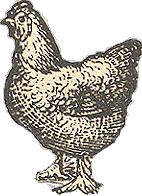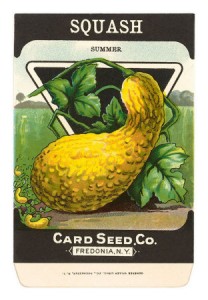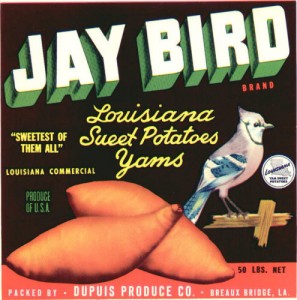Texas lawyers are seeking discovery against hog-raising giant Smithfield Foods to determine whether a swine operation it partly owns in Mexico might have contributed to the death of a Harlingen woman in the H1N1 flu outbreak. “Mexican health officials have found no connection between the swine flu virus and the pig farm. Nevertheless, residents there have long blamed the farming operation for a variety of illnesses, UPI reported.” The lawsuit might seek $1 billion. [Brownsville Herald, May 12]
Posts Tagged ‘agriculture and farming’
May 16 roundup
- At “Hit and Run”, Damon Root deems a certain website “indispensable” [Reason; accolades file]
- Montgomery Blair Sibley, colorful lawyer for the “D.C. Madam” and a figure much covered on this site, has new book out [Doyle/McClatchy]
- Although Indian tribal litigators attacked it as “disparaging”, the Washington Redskins football team can keep its trademark, for now at least. “My ancestors were both Vikings and Cowboys. Do I have a course of action?” [Volokh comments]
- “Is Patent Infringement Litigation Up or Down?” [Frankel, The American Lawyer]
- Maryland high court dismisses autism-mercury lawsuit [Seidel, Krauss @ Point of Law]
- Chrysler dealers are lawyering up against the prospect of being cast off [WSJ Law Blog]
- “Should doctors who follow evidence-based guidelines be offered liability protection?” [KevinMD]
- Obama proposes $1.25 billion to settle black farmers’ long-running bias claims against the U.S. Department of Agriculture [AP/Yahoo]
National Animal Identification System advances
The controversial farm-animal tracking proposal NAIS seems to be marching ahead at a rapid pace toward mandatory adoption. La Vida Locavore:  “During the hearing, I never once heard that there was any distinction between large commercial, small commercial selling direct to consumers, homesteaders or hobbyists. All I ever heard was that everyone wants a mandatory NAIS. For everyone.” The tagging and paperwork would apply not only to four-footed livestock, but to poultry, fish, shellfish “and some crustaceans. Just about any animal you might find on a farm except dogs, cats and rabbits.” Earlier here and here.
“During the hearing, I never once heard that there was any distinction between large commercial, small commercial selling direct to consumers, homesteaders or hobbyists. All I ever heard was that everyone wants a mandatory NAIS. For everyone.” The tagging and paperwork would apply not only to four-footed livestock, but to poultry, fish, shellfish “and some crustaceans. Just about any animal you might find on a farm except dogs, cats and rabbits.” Earlier here and here.
“Food safety bill critics: Small farms could lose”

After you fully discount the chain-email false alarms, you’re left with plenty of well-founded concerns about how small producers would fare under the various food-safety measures before Congress. Farm World:
The public outcry has mostly focused on the Food Safety Modernization Act of 2009 (House Resolution 875), but Kastel [Mark Kastel of the Cornucopia Institute] pointed out that of all the food safety bills currently before Congress, the Food and Drug Administration (FDA) Globalization Act of 2009 (HR 759) appears to be the one that’s most likely to be voted on, possibly with elements of the other bills incorporated [emphasis added].
Sponsored by Congress’ most senior member, Rep. John Dingell (D-Mich.), HR 759 amends the Federal Food, Drug and Cosmetic Act to include provisions governing food safety. The bill provides for an accreditation system for food facilities, and would require written food safety plans and hazard analyses for any facilities that manufacture, process, pack, transport or hold food in the United States.
It also calls for country of origin labeling and science-based minimum standards for harvesting fruits and vegetables, as well as establishing a risk-based inspection schedule for food facilities. …
The [Cornucopia] institute claims the preventative measures [on handling of food on farms] are designed with large-scale producers and processors in mind and “would likely put smaller and organic producers at an economic and competitive disadvantage.”
The American Farm Bureau Federation opposes Dingell’s bill, arguing that improving existing inspection and import methods would be preferable. [Earlier entries in series here, here, and here]
HR 875 and local food: is Rep. DeLauro backtracking?
[Third in a series on the possible effects of proposed federal food safety legislation on small/local foodmakers and farmers. Earlier coverage is here and here; and see related post on animal-tracking proposals]
- Could the outcry be having an effect? Until now, Rep. Rosa DeLauro (D-Ct.) has repeatedly insisted that backyard and kitchen-table producers have nothing to fear from her bill, H.R. 875, the proposed Food Safety Modernization Act, because they do not engage in “interstate commerce”.
 Many observers pointed out that under U.S. Supreme Court precedent, an exceedingly broad range of agricultural and food activity (right down to the growing of grain with which to feed oneself or one’s animals) has counted as within the bounds of “interstate commerce” reachable by federal regulation.* Now, at the end of a Huffington Post piece sympathetically relaying DeLauro’s views, there comes an “Update” nodding toward the courts’ practical application of the “interstate commerce” concept and reporting that DeLauro’s staff is promising “clarifications” of the bill’s reach, perhaps even “technical corrections”, to be ready “in the next few weeks”.
Many observers pointed out that under U.S. Supreme Court precedent, an exceedingly broad range of agricultural and food activity (right down to the growing of grain with which to feed oneself or one’s animals) has counted as within the bounds of “interstate commerce” reachable by federal regulation.* Now, at the end of a Huffington Post piece sympathetically relaying DeLauro’s views, there comes an “Update” nodding toward the courts’ practical application of the “interstate commerce” concept and reporting that DeLauro’s staff is promising “clarifications” of the bill’s reach, perhaps even “technical corrections”, to be ready “in the next few weeks”. - When those corrections and clarifications appear, one crucial question will be whether they include any de minimis provisions exempting small, local, or informal producers and sellers (of course, these entities might continue to face stringent state or local regulation). As it stands now FSMA, like CPSIA before it, is notable for its lack of de minimis exclusions, as well as its failure to prescribe “scale-appropriate” principles (“tiering”, streamlined reporting, etc.) by which entities that deal in less than industrial volumes might be given the benefit of simpler and less onerous rules.
- Given the stated views of the advocacy groups behind FSMA, I very much doubt that a revised version will in fact exempt producers of food intended for consumption within one state only. Even if it does, however, the law will still cover many persons like Harold Gundersen, who sells food from his Southwest Michigan farm at two suburban-Chicago farmer’s markets and in doing so manages to have legal contact with three states in all:
“We’re highly regulated by state government and federal government,” he said. … [Gundersen] pays $65 twice a year to an inspector from DuPage County, who comes up to Michigan to inspect the apple butter and cider that he sells.
Gundersen is indignant at that last requirement because he doesn’t even process the apple butter and apple cider — he takes his apples down to an Amish man in Indiana who seals them in cans and jugs. Because that facility is already visited by Indiana inspectors, Gundersen sees no reason for a DuPage inspector to take a second look.
“There is nothing for her to look at,” Gundersen said. “She looks at my jars and says, ‘OK, I’ll sign this stuff.'”
Through much of the country — in most of the big cities of the Northeast and Midwest, for example — food grown within a radius of (say) 100 miles will often have crossed state lines.
- FactCheck’s lullaby of reassurance on the subject contains the following passage aimed at readers who might be perceiving FSMA as a far-reaching power grab by the federal government, or something like that:
The bill has 41 cosponsors** and has been endorsed by major food and consumer safety organizations, including the Center for Science in the Public Interest, Consumer Federation of America, Consumers Union, Food & Water Watch, and The Pew Charitable Trusts. Food & Water Watch is a nonprofit organization that advocates for clean water and safe food and is headed by a woman who used to work for Public Citizen, the consumer group founded by Ralph Nader.
 Well! If a bill has 41 cosponsors, it must have been well vetted, right? (CPSIA had 106). And its backers include not only Consumers Union and Consumer Federation of America — both instrumental in bringing us the CPSIA debacle — but also a group headed by an alum of Nader-founded Public Citizen. It’s not as if Public Citizen was the acknowledged leader of the Washington coalition that pushed for CPSIA and has defended it ever since, right? Oh wait.
Well! If a bill has 41 cosponsors, it must have been well vetted, right? (CPSIA had 106). And its backers include not only Consumers Union and Consumer Federation of America — both instrumental in bringing us the CPSIA debacle — but also a group headed by an alum of Nader-founded Public Citizen. It’s not as if Public Citizen was the acknowledged leader of the Washington coalition that pushed for CPSIA and has defended it ever since, right? Oh wait.Center for Science in the Public Interest? That’s the outfit that’s called for federal regulation of the use of salt in foods, and its busybody litigiousness has long furnished copious material for this site. Pew Charitable Trusts (is it now OK for charitable foundations to support legislation?) has long had its hand in a hundred activist causes. And so forth. This is not reassurance; to coin a phrase, it’s de-assurance.
- Deputy Headmistress: “I would believe these consequences were ‘unintended’ if I didn’t see the same consequences from government action over and over again.”
- No, I don’t agree with the chain-email theories that insist that Monsanto, the giant agribusiness firm, is masterminding the push for this law. (Or the counter-push against it, depending on who you talk to. Maybe both!). Since the company’s name is always coming up, however, here’s a link to what the company’s own spokesman had to say on the lefty site Crooks and Liars, which was not quite what I expected (though I’m not sure what I did expect).
- Brian Doherty writes about the furor at Reason (with comments here) and John Schwenkler also weighs in at his blog. And in the comments section of our initial post, check out what “Pelly” has to say about yogurt in Nova Scotia.
*Of course, it’s possible that a statute might not grant the federal regulator as much authority as courts would be willing to uphold as constitutional. HR 875 incorporates by reference the FDA’s current definition of “interstate commerce”. I’m not an expert in this area, but various documents suggest that the FDA already asserts much authority over items and processes whose production or use does not cross state lines.
**Among the 41 co-sponsors are such figures as Rep. Jan Schakowsky (D-Ill.), who as a co-sponsor and defender of CPSIA has been ferociously unsympathetic to distress cries from small businesses arising from that law.
March 31 roundup
- Litigation over high-tech products is rife, but major benefits for consumers can be hard to discern [Low End Mac]
- “United settles with female ex-pilot who found p0rn in cockpits” [Obscure Store]
- California suit charges negligent “laying on of hands” at church service [Lowering the Bar]
- UN resolution against “defamation of religion” imperils free speech [Paula Schriefer, Freedom House/CSM, Steyn/NR “Corner”, National Secular Society (U.K.), Ilya Somin @ Volokh
- DivorceNetwork.com, social networking for those caught up in family law battles? [Ambrogi, Legal BlogWatch]
- Prosecutors behaving badly in Wayne County (Mich.), Miami, Santa Clara County [Radley Balko, Reason “Hit and Run”]
- After nine years, the notorious Bill Lerach California-unfair-competition-law suit against Kwikset (over several screws from Taiwan in a lock marked “Made in America”) finally winds down [California Civil Justice, earlier]
- Oklahoma AG Drew Edmondson to poultry companies: my pals will bankrupt you with massive verdicts unless you settle [Rizo/Legal NewsLine; more]
Beekeeping illegal in New York City
But there’s a romantic underground doing it anyway.
National Animal Identification System
CPSIA-reminiscent: a pending proposal to require all owners of livestock and poultry to tag each creature with a radio ID, and do a lot more paperwork besides that, could spell an end to small-scale backyard animal husbandry. (Shannon Hayes, “Tag, We’re It’, New York Times, Mar. 10). More: Timothy Carney, D.C. Examiner; Jack Kittredge, Mother Earth News, 2007.
RFK Jr. at it again on hog farms
Six years ago America’s Most Irresponsible Public Figure®, celebrity environmentalist Robert F. Kennedy, Jr. made himself a laughingstock by announcing that large hog farms were more of a danger to America than Osama bin Laden. Asked about it yesterday while testifying to a House Judiciary subcommittee, Kennedy responded as follows, according to Ralph Hallow in the Washington Times:
“I don’t know if that [quotation] is accurate, but I believe it and I support it,” said Mr. Kennedy, who has been involved in a vigorous legal effort against the meat industry for some years, arguing that manure and other products associated with large livestock producers emit toxic wastes that threaten the environment.
Mr. Kennedy also has said that a single hog consignment can put out more pollution than a city of a million people.
He has also said that every public official in North Carolina has been corrupted by the pork industry. He cited as evidence an editorial in a Raleigh newspaper, although he also said there may be some exceptions. …
Mr. Kennedy has said that he plans to go after all large farms in the country, not just pork producers. He has also said that the “right” lawsuit against livestock producers could bring damage awards of up to $13 billion.
Kennedy is deeply involved with contingency-fee private lawyers running the lawsuits against agricultural producers, a fact that only infrequently surfaces in news accounts about the hothead scion, who’s been the subject of regular coverage at this site since its beginning nearly ten years ago. More: Gateway Pundit.
Microblog 2008-11-25
- Why real estate agents make you sign 1,000 silly forms [Christopher Fountain] Michigan requires acknowledgment that nearby farms “may generate noise, dust, odors” [Land Division Act h/t Sean Fosmire]
- Albuquerque police take out want ad seeking snitches [AP]
- “A prez must know S of S has no agenda other than his own” Chris Hitchens flays the Hillary pick [Slate]
- Not all British nannies are charming: U.K. regulators may ban “happy hour” in bars [AP h/t Jeff Nolan]
- As Georgia “sex offender” horror stories go, Wendy Whitaker case may outdo Genarlow Wilson’s [Below the Beltway; more on Wilson case]
- U.K. juror polls her Facebook friends to help decide on case [AllFacebook h/t @lilyhill and @Rex7; Greenfield]
- Looking for political conservatives on Twitter? Here’s a long list [Duane Lester, All American Blogger; and I have a comment on ways to use Twitter]
- New page of auto-feeds from leading Canada & U.S. law & politics blogs [Wise Law Reader]
- Bailout’s a lot bigger than you think, try $7.8 trillion with a “t” [John Carney]. Claim: with $ sunk since ’80, GM and Ford could have closed own plants and bought all shares of Honda, Toyota, Nissan and VW [David Yermack, WSJ via Cowen]. What if Citi gives up Mets naming rights? Gary’s Bail Bonds Stadium just doesn’t quite have the same ring to it [Ray Lehmann]
- Australian class action could derail because overseas funders didn’t register as investment managers [The Australian h/t @SecuritiesD]
